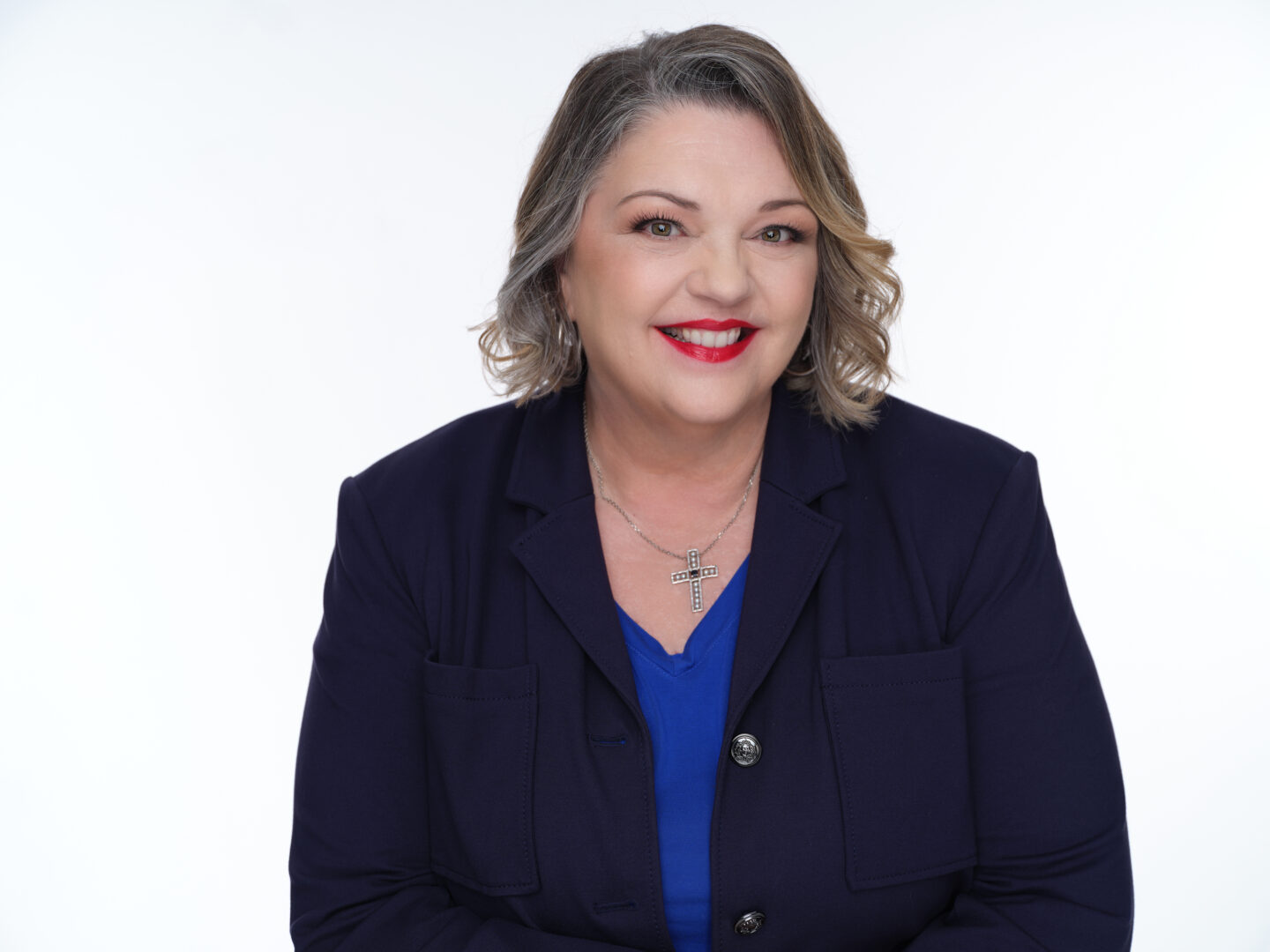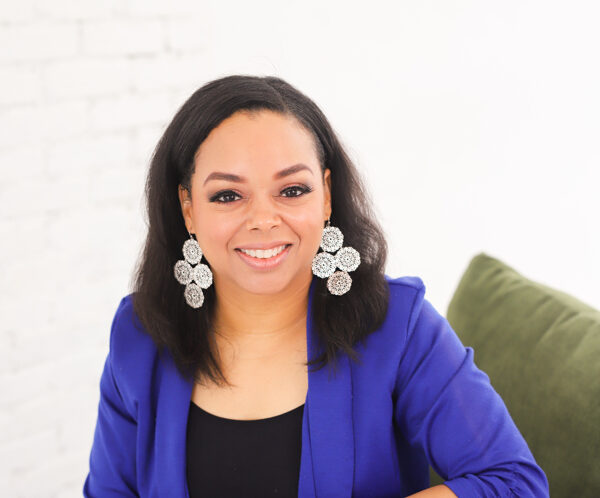We’re excited to introduce you to the always interesting and insightful Tamisha Williams. We hope you’ll enjoy our conversation with Tamisha below.
Tamisha, so many exciting things to discuss, we can’t wait. Thanks for joining us and we appreciate you sharing your wisdom with our readers. So, maybe we can start by discussing optimism and where your optimism comes from?
My optimism is rooted in two powerful foundations: my faith and my community.
Growing up, I wasn’t the child with a clear vision of my future career or adult life. I lived in the moment, following my passions and interests wherever they led. When I reached college and saw peers with seemingly clear paths, doubt crept in. Would my less-defined journey lead to success? Yet even in those moments of uncertainty, something deep within me knew that my unique path was valid.
The cornerstone of this perspective was my upbringing in the church. Faith has always been central to my family, instilling the belief that we can do all things through God and that He will meet our needs. My energy and motivation disappeared when I tried forcing myself into the boxes others suggested. Instead, I’ve learned to trust my intuition and develop a profound faith that following my calling, even through uncertainty, leads to things working out as they should. My optimism comes from the simple, powerful belief that God’s got me.
My optimism is equally fueled by my ancestors, elders, and community. During challenging times, I look to the strength and resilience of my community, past and present, and remember: we can do hard things. We’ve been here before, weathered worse storms, and through community and faith, emerged on the other side. The stories of how family and community members persevered through past struggles spark an optimism that solutions exist, and we need to pause long enough to tap into our internal and external resources and be present for the available wisdom.
These twin pillars of faith and community resilience sustain my optimism even during life’s most challenging moments. When preparing to end my first marriage, I moved forward with the optimism that joy and love awaited on the other side, inspired by people in my life who had navigated similar transitions and found happiness. When I left a high-status, well-paying job to start my own company, I did so with optimism, knowing that by acting on faith and creating healthier environments for myself, I would not go without.

Great, so let’s take a few minutes and cover your story. What should folks know about you and what you do?
My background and training are in education and counseling. I’ve always had a passion for education and believe everyone deserves access to high-quality, affirming learning experiences. This belief guided me into equity work, serving as a DEI (diversity, equity, and inclusion) director in schools, helping people throughout organizations understand our complex identities, and addressing inequities that created barriers to success.
While I loved my work as an equity practitioner, I found these positions unsustainable. I craved work that sparked joy without being all-consuming, a life where I could be more present for my loved ones and prioritize my self-care. This yearning led me to create my own company.
My business supports BIPOC women and nonbinary leaders to thrive professionally without sacrificing wellness, a mission born from my journey to create sustainable work-life practices. Through personal and executive coaching, I help leaders recover from or prevent burnout, build resilience in the face of systemic inequities, and integrate wellness into their leadership approach. I accomplish this by infusing mindfulness and somatic practices into my work while centering joy and community.
What excites me most is watching clients transform from isolated, emotionally detached, and overwhelmed to confident boundary-setters who model wellness and sustainability in their leadership. It’s thrilling to hear how these leaders go on to create sustainable practices and policies within their organizations.
I’m entering an exciting new chapter with the launch of my Well Leader program, a year-long executive coaching experience for top-level leaders transitioning from hands-on management to more strategic and visionary roles. I’m eager to support these executives as they tap into their zone of genius, clarify their evolving responsibilities, and develop new skills for their changing leadership demands.
Simultaneously, my Abuntu coaching program for mid-level leaders is expanding to include workbooks that explore its five core principles: assessing well-being, aligning with core values, assembling your support crew, activating your plan, and attuning to your inner compass. These resources create entry points for those not yet ready to invest in coaching but eager to begin their development journey. At its heart, Abuntu coaching helps leaders pursue their ambitions without isolation or self-sacrifice.
If you had to pick three qualities that are most important to develop, which three would you say matter most?
Looking back, the three qualities that have had the greatest impact on my journey have been my ability to cultivate and activate my network, center joy, and give myself permission to change direction when something no longer serves me.
The Power of Community: Community has provided me joy, celebration, inspiration, accountability, and resources for growing as a person, parent, leader, and coach. There’s immense shared expertise within my network. I’ve intentionally cultivated a values-aligned community—people who operate from an abundance mindset, prioritize rest, prevent me from burning out, and are joy-filled.
Humans are communal beings. My ability to nurture loving and affirming connections has helped me gracefully navigate my most significant life transitions. Systems will inevitably fail us, but community forms the foundation that keeps you afloat, nourished, and cared for when gaps appear.
Centering Joy: Our brains have a negativity bias. Even if 99 great things happen in a day, our brains are wired to focus on the one thing that didn’t go well. While this survival mechanism has its place, we must intentionally counteract it to avoid spiraling into negativity.
I’ve developed practices that help me center joy and celebrate blessings, even during challenges. Daily gratitude meditation or journaling helps me focus on what’s going well. I often smile at the simple beauty and abundance I might otherwise overlook in my life.
Permission to Change Direction: A middle school teacher once told our class, “You can change your mind at any time. Always remember that.” Years later, her words took root, and I realized my worth and well-being were more important than being universally liked.
Now, I’m comfortable stopping projects that no longer align with my integrity, ending relationships that don’t feel right, and leaving experiences that no longer serve me. I don’t do this flippantly, but I don’t wait for something catastrophic to happen before changing course when my health and well-being demand it.
For those early in their journeys:
Get clear about your core values. As you build your supportive community, know what elements will help you feel surrounded by people who contribute to your well-being. A smaller, values-aligned community is far more valuable than an extensive network you can’t fully trust.
Create regular celebration practices. Establishing gratitude habits during good times makes them accessible during challenges. These practices boost your mood, relieve stress, and foster a more balanced perspective. You’ll operate more from love—accessing curiosity, creativity, and empathy—rather than fear or scarcity.
Practice setting boundaries. Start with small nos and give feedback on minor issues. Regular practice makes it easier to set firm boundaries when necessary. Trust your intuition when circumstances shift. It’s okay for people to be disappointed in your choices. What’s not okay is living solely for others and looking back to realize you never centered your joy and well-being.

Who is your ideal client or what sort of characteristics would make someone an ideal client for you?
My ideal clients are BIPOC women and nonbinary leaders who are professionally accomplished but experiencing burnout and disconnection between their ambitions and well-being. They often navigate unsupportive environments and systemic bias while managing leadership responsibilities with insufficient support. What defines them is their mindset. My ideal clients are driven and passionate about excellence yet question whether success requires self-sacrifice and are ready to invest in integrating wellness into their leadership approach. They value equity and empowerment, are open to mindfulness and somatic practices, and seek transformation that allows them to be effective leaders while experiencing greater joy and life satisfaction. Ultimately, they don’t just want career advancement; they want to thrive professionally without compromising their health and well-being.
Contact Info:
- Website: https://tamishawilliams.com/
- Instagram: https://www.instagram.com/tamishawilliamsconsulting/
- Linkedin: https://www.linkedin.com/company/tamisha-williams-consulting/
- Youtube: https://www.youtube.com/@tamishawilliamsconsulting
- Other: https://www.tamishawilliams.com/links

so if you or someone you know deserves recognition please let us know here.




